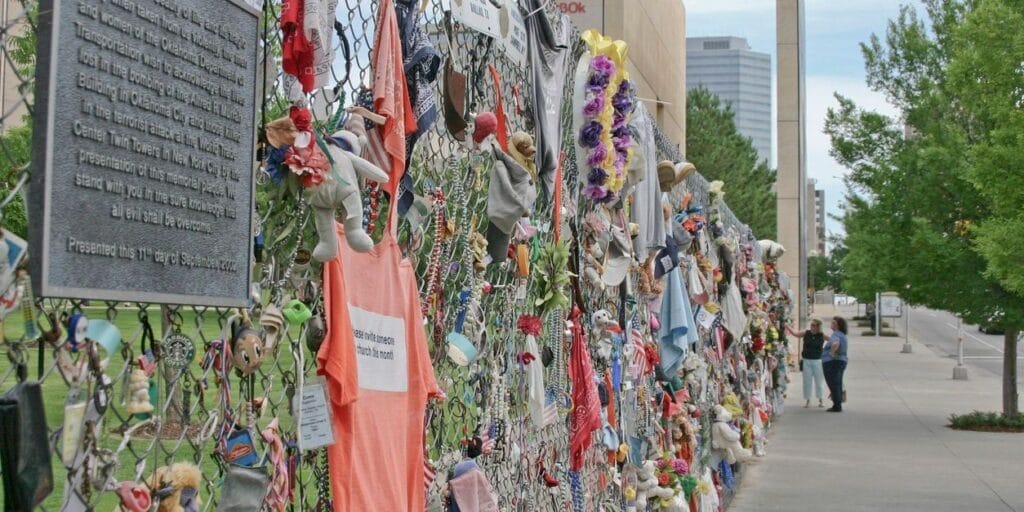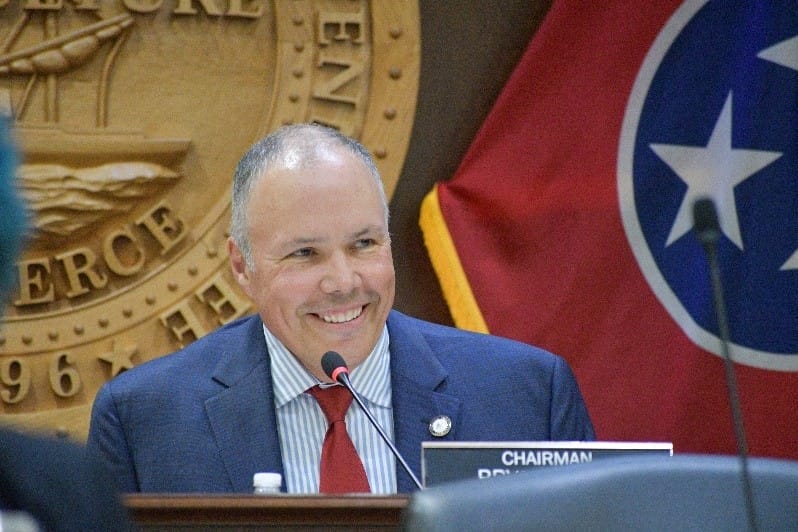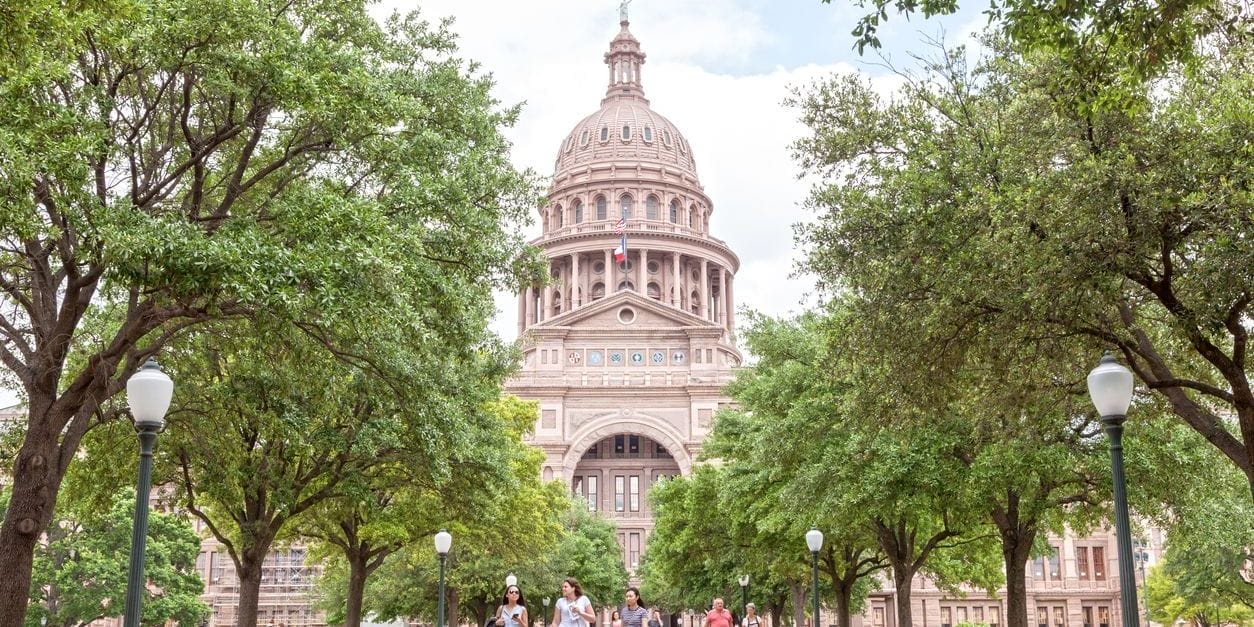Finding the glimmer: Rep. Bryan Terry on hope and healing in public life

Rep. Bryan Terry represents Tennessee’s 48th District, which includes parts of Rutherford County and the city of Murfreesboro. A physician and anesthesiologist, he also chairs the Tennessee House Health Committee. In this conversation with American Habits Editor Ray Nothstine, he reflects on how tragedy, medicine, and public service intersect, from his experience responding to the 1995 Oklahoma City bombing to his work advancing healthcare policy in Tennessee.
I read that you were part of the medical response during the Oklahoma City bombing. It’s the 30th anniversary this year — how did that experience shape your perspective as a physician and influence your approach to leadership and policymaking today?
Rep. Bryan Terry: It had a huge impact. Even after 30 years, it’s still very emotional for me to talk about. In medicine, you see tragedy and heartbreak sometimes, and you try to compartmentalize those experiences but an event like the bombing never leaves you. I lost two classmates that day, one of whom was pregnant. Those memories stick with you.
As a physician, you see so much suffering that it’s easy to forget you’re human, too. Doctors actually have a higher suicide rate than the general population. Over the years, I’ve told people that if I ever become numb to tragedy, or if I ever become too affected by it, that’s when it’ll be time to step away from medicine.
From a policymaking perspective, those experiences remind me every day that life is fragile, and we can be gone in an instant. There’s a lot of evil in the world, but I try to set a positive example and offset that evil with good.
You’re an anesthesiologist and chair of the House Health Committee. How does your medical background shape the way you evaluate healthcare legislation?
Rep. Terry: It gives me multiple lenses—as a patient, provider, student, and legislator. I try to look at healthcare through four perspectives: public health, population health, personal health, and political health.
Public health deals with data and outcomes at a population level. Population health focuses on specific groups such as pregnant women, rural residents, or Native Americans. Personal health is about the relationship between doctor and patient. And political health? That’s when bills are pushed for political reasons.
Having worn different hats, I can filter out some of that political noise and focus on what’s best for individuals while also working to meet the needs of the wider public.

Healthcare policy often sits at the intersection of state innovation and federal regulation. Where do you think Washington has overstepped, and what should be returned to the states?
Rep. Terry: Washington tends to impose one-size-fits-all mandates that don’t reflect state or regional differences. Healthcare works best when decisions are made close to the people being served.
Take Medicaid, for example. TennCare has been one of the most efficient programs in the country because we’ve had some flexibility, at least compared to other states. But too often, the federal government still limits what we can do. Instead of micromanaging so much of the delivery side, Washington should set broad standards for safety and quality and then let states take a much more innovative approach.
To me, your bio exudes somebody that has compassion, and you’ve spoken about personal responsibility and overcoming challenges: growing up with asthma, financial struggles, and being Native American. How does that shape your thinking about healthcare access and affordability today?
Rep: Terry: In terms of responsibility, just because you might have the means and the willingness to be personally responsible, there are still barriers for a lot of people. Just because you want to do something doesn’t mean that you can do something. I’m very liberty-minded, and come from a freedom and personal responsibility standpoint, and from a healthcare perspective, that also comes with choices. You might make personal choices that aren’t always in the best interest of your health.
Government can’t or shouldn’t micromanage somebody’s health, but how can we make better choices as an individual and families?
Looking back on my younger years, I grew up as a Native American in a third-generation auto salvage family. We didn’t have a lot, but I was fortunate to be in Oklahoma City, where my parents made sacrifices to ensure I had access to healthcare. I remember them navigating insurance challenges just so I could see the right specialists. Fortunately, Oklahoma City had resources like the Oklahoma City Allergy Clinic and pulmonologists who helped me manage my asthma.
Now contrast that with a Native American or someone living in rural America or on a reservation. Insurance premiums have risen dramatically, and many people lack access to specialists such as pulmonologists or allergists — or even reliable transportation to reach them. We have to consider how we can better support those populations: how to help them make better choices, and how to ease the burden for those who are already trying to take responsibility for their health. That’s one of the ongoing challenges in healthcare policy.
You’ve been through tragedy and seen your share of challenges in politics. We hear so much about division, anger, and pessimism these days. Given your experience, what gives you hope about the direction of our communities and country?
You’re right that it can be difficult to stay hopeful with so much negativity in politics and the media. Whether on the left or the right, people can get stuck in their echo chambers, and that fuels fear and anger.
When I think about hope, I go back to the Oklahoma City bombing. Out of that tragedy, I saw a community come together in an incredible way. Thirty years later, when the Oklahoma City Thunder won their championship, it wasn’t just about sports, it was a symbol of resilience, unity, and pride in overcoming darkness.
I’ve seen that same strength here in Tennessee. When floods devastated parts of East Tennessee, communities rallied to help one another. That spirit is still alive, even if it doesn’t always make headlines.
I read something recently that really struck me: everyone talks about what “triggers” them, but not enough about what gives them “glimmers” of hope. Every day, I try to look for those glimmers — small moments of kindness or courage. And sometimes, you have to decide to be that glimmer for someone else.



